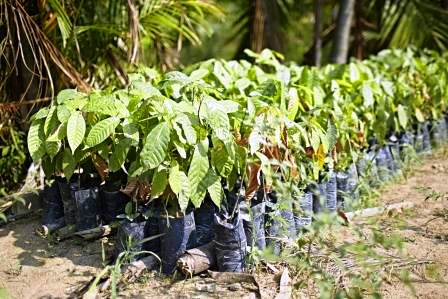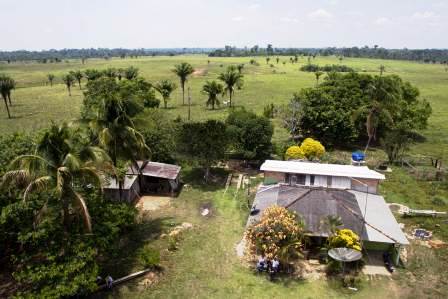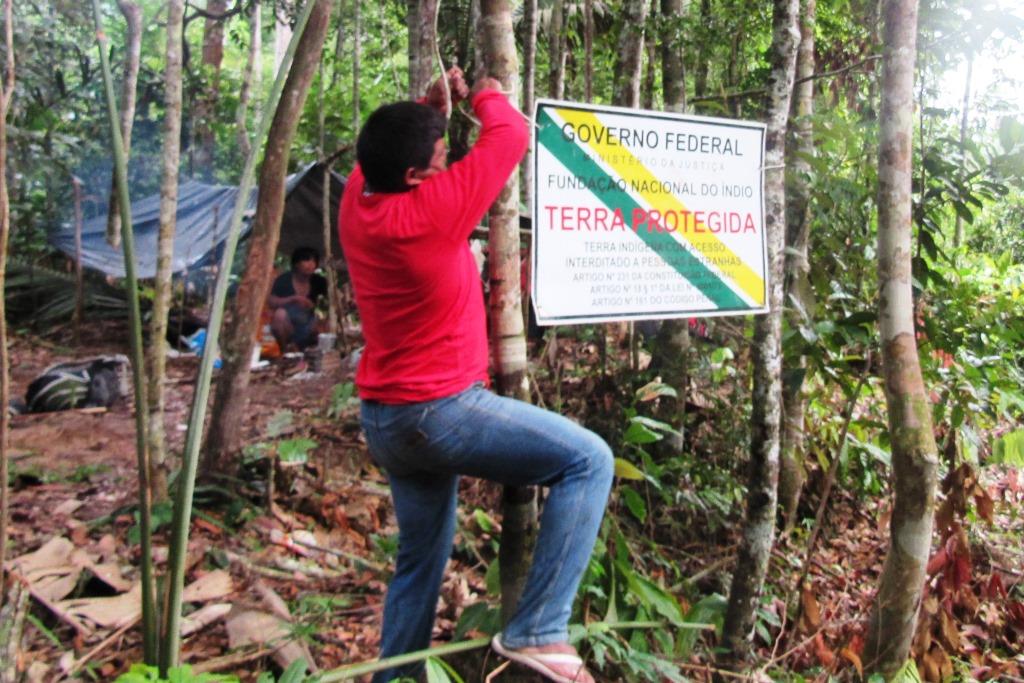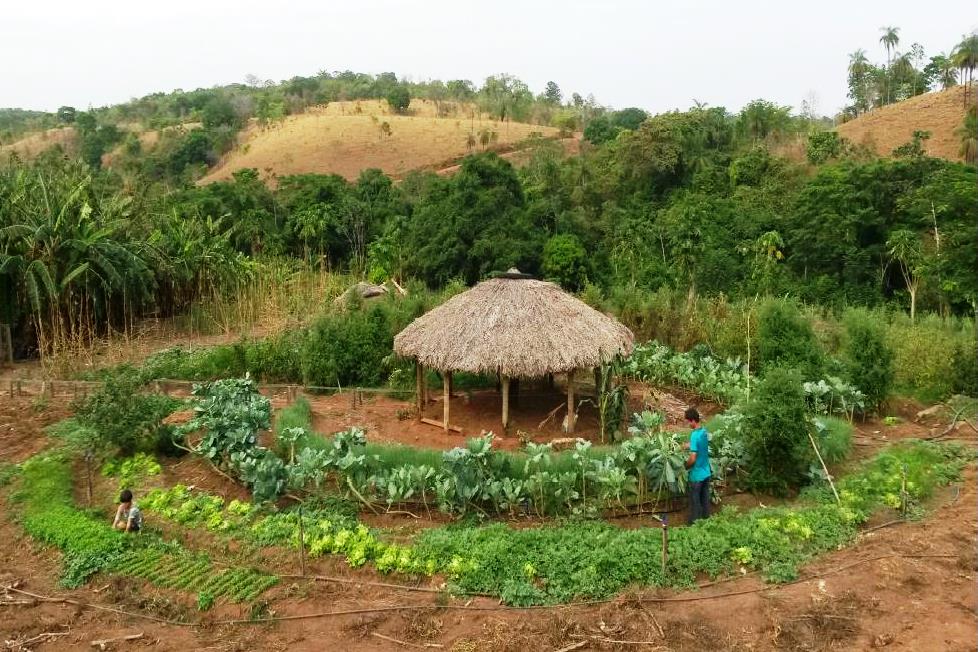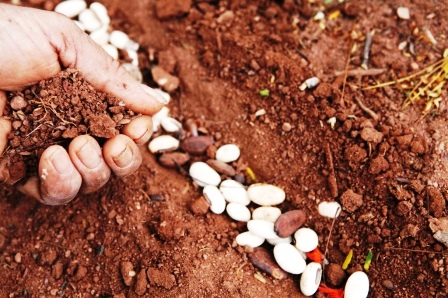RESULT AND IMPACT INDICATORS
The project activities contributed to the results related to the “sustainable production” component (1) of the Amazon Fund Logical Framework.
The main indicators used to monitor this objective were:
- Revenue obtained from the commercialization of Brazil nuts and fresh fruits (outcome indicator)
Target: not defined | Final result: R$20.1 million
- Revenue obtained from the commercialization of Brazil nuts and processed fruits (outcome indicator)
Target: not defined | Final result: R$34.9 million
Although no targets have been established for marketing revenue, the amounts achieved exceeded those observed in the years prior to the execution of the project, consolidating Cooperacre's revenue at higher levels.
- Number of in natura product storage structures built (output indicator)
Target: 2 | Final result: 2
The construction of community warehouses was of great importance for the production chain, since the harvest period coincides with that of the rainy season, making it impossible to traffic on the extensions and roads for the transport of production.
- Number of individuals trained in management techniques and sustainable production (output indicator)
Target: 180 | Final result: 293
- Number of individuals trained in management techniques and sustainable production effectively using the knowledge acquired (outcome indicator).
Target: not defined | Final result: 219
The overcoming of the training goal represented an important result of the project, allowing the representatives of the associations to perform their administrative functions with greater clarity and understanding, with emphasis on the principles adopted by cooperativism
- Number of new certified communities in organic production of Brazil nuts (output indicator)
Target: 7 | Final result: 7
- Number of communities with renewed certification in organic production of Brazil nuts (output indicator)
Target: 7 | Final result: 7
- Area (ha) of implanted SAFs (output indicator)
Target: 600 ha | Final result: 602.5 ha
- Number of properties with SAFs implemented (outcome indicator)
Target: 291 | Final result: 291
The table below shows the evolution of deforestation in the state of Acre in the last eight years:
|
Deforestation (km²)
|
2021
|
2020
|
2019
|
2018
|
2017
|
2016
|
2015
|
2014
|
|
Acre
|
871
|
706
|
682
|
444
|
257
|
372
|
264
|
309
|
|
Legal Amazon
|
13,235
|
10,851
|
10,129
|
7,536
|
6,947
|
7,893
|
6,207
|
5,012
|
|
Acre / total (%)
|
6.6%
|
6.5%
|
6.7%
|
5.9%
|
3.7%
|
4.7%
|
4.3%
|
6.2%
|
Source: preparation based on PRODES/INPE data.
Institutional and administrative aspects
The project had important partnerships in the actions of recovery of degraded or altered areas and technical assistance. With Embrapa Acre's experience in organizing production systems in conservation units for sustainable use, it was possible to strengthen exchanges between local producers and project beneficiaries, who experienced successful experiences introduced over six years in pasture areas abandoned by the practice of extensive livestock.
Cooperacre has also established other partnerships with organizations of the state and federal public sector, and it is worth mentioning: i) State Secretariat for the Environment (SEMA), which has been developing agroforestry education work with traditional populations since 2008, through the methodology of the “Agroforestry Educator's Backpack”; ii) State Secretariat for Agroforestry and Family Extension (SEAPROF), aiming to support families for the purpose of issuing a Declaration of Fitness to Pronaf (DAP)¹; and iii) Institute for Colonization and Agrarian Reform (INCRA), with the information and documentation related to the Settlement Projects (PA) of the beneficiaries.
Also note the partnership with the non-governmental organization WWF Brazil, which technically supported the realization of "Agroforestry Efforts" for the implementation of SAFs in the Amoprex community, located in the Chico Mendes Extractive Reserve, in the municipality Xapuri.
Risks and lessons learned
One lesson learned concerns obtaining the license to build one of the community warehouses supported by the project. Due to the fact that it is located in a conservation area under the management of ICMBIO, it was necessary to submit the licensing request to Ibama in Brasilia, which resulted in a delay of approximately six months for the start of construction.
Likewise, the actions of recovery of degraded areas depended on the registration of the properties in SICAR. Although the project had the support of SEMA for aid to producers, there was also a delay in the start of this activity.
These episodes, although they represent an important lesson for the early evaluation of the times required to meet the legal requirements for the execution of projects in the region, did not prevent the satisfactory execution of the activities or the achievement of the desired results.
Sustainability of results
The actions supported were aimed at sustainable production and income generation for local populations. This characteristic contributes to the results achieved being sustained over time and even expanded in the most successful cases. The achievement of the goals agreed upon after the execution of the project suggests that the investments and the new techniques introduced were well assimilated by the families.
¹ Pronaf - National Program for the Strengthening of Family Agriculture, which offers financing for funding and investments aimed at generating income and improving the use of family labor.


